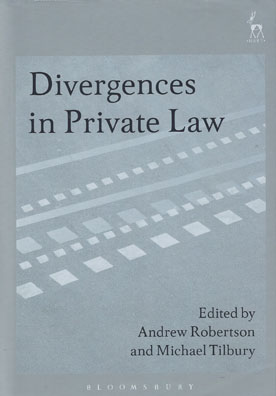
This book is a study of doctrinal and methodological divergence in the common law of obligations. It explores particular departures from the common law mainstream, the causes and effects of those departures, and the extent to which they undermine the idea of the common law as a single, transnational body of law.
Some divergences can be justified on the basis of a need to adapt the common law of contract, torts, equity and restitution to local circumstances, or to bring them into conformity with local values. More commonly, however, doctrinal or methodological divergence simply reflects different approaches to common problems, or different views as to what justice or policy requires in particular circumstances.
In some instances divergent methodologies lead to substantially the same results, while in others particular causes of action, defences, immunities or remedies recognised in one jurisdiction but not another undoubtedly produce different outcomes. Such cases raise interesting questions as to whether ultimate appellate courts should be slow to abandon principles that remain well accepted throughout the common law world, or cautious about taking a uniquely divergent path.